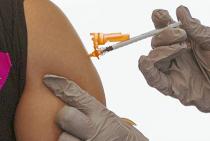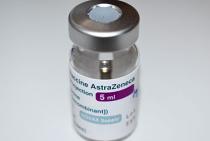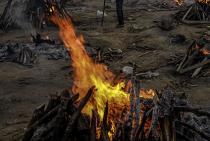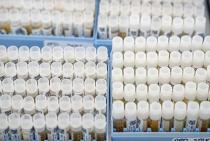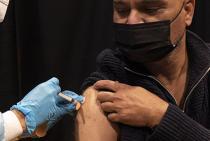New York Times reporting: An early study of coronavirus test results in South Africa suggests that, so far, patients infected with the omicron variant may be hospitalized less often than patients infected with earlier versions of the virus. The study — which was released Tuesday and is based on only three weeks of data — also shows that vaccines are not as effective against the variant, which poses a higher risk of breakthrough infections. Booster shots increased the Pfizer vaccine’s efficacy against infection.
You are here
Results for Pandemic
Wednesday 15 December 2021
Johannesburg, South Africa
Wednesday 4 August 2021
New York, USA
New York Times reporting: The rise of the highly infectious Delta variant of the coronavirus has raised new questions about how the vaccinated can stay safe and avoid breakthrough infections. We asked the experts for advice. As long as large numbers of people remain unvaccinated, vaccinated people will be exposed to the Delta variant. “Vaccinations give you that extra protection you wouldn’t normally have,” says Dr. Erin Bromage. “But when you hit a big challenge, like getting near an unvaccinated person who has a high viral load, that wall is not always going to hold.”
Monday 10 May 2021
 Premium content
Premium content
Tokyo, Japan
New York Times reporting: Japan on Friday extended a state of emergency in Tokyo and other regions until the end of May to contain a surge of coronavirus cases, casting further doubt on the country’s ability to safely host the Summer Olympics, which are scheduled to begin in 11 weeks. Prime Minister Yoshihide Suga made the announcement at a meeting of the government’s coronavirus task force, saying that the measures were necessary because infections remain at a “high level, mainly in large cities.”
Tuesday 4 May 2021
 Premium content
Premium content
Sydney, Australia
New York Times Reporting: About 8,000 Australians are affected by an unprecedented travel ban that began on Monday, prompted by India’s record-breaking COVID outbreak. It is believed to be the first time that Australia has made it a criminal offence for its own citizens and permanent residents to enter the country, with a threat of jail time or large fines. Families are separated and Indian-Australians are outraged.
Thursday 29 April 2021
 Premium content
Premium content
London, United Kingdom
People who have been vaccinated with a single dose of either the Oxford-AstraZeneca or Pfizer-BioNTech vaccines were 65% less likely to get a new Covid infection, a UK study has found. The chances of becoming infected by COVID (SARS-CoV-2) fell sharply after a first dose. However, some people can still get Covid after being vaccinated but the ongoing transmission is reduced.
Wednesday 28 April 2021
 Premium content
Premium content
New Delhi, India
New York Times reporting: Crematories are so full of bodies, it’s as if a war just happened. Fires burn around the clock. Many places are holding mass cremations, dozens at a time, and at night, in certain areas of New Delhi, the sky glows. Sickness and death are everywhere. India is recording more infections per day — as many as 350,000 — than any other country has since the pandemic began. What we had been fearing during last year’s first wave, and which never really materialized, is now happening in front of our eyes: a breakdown, a collapse, a realization that so many people will die. By Jeffrey Gettleman.
Monday 19 April 2021
 Premium content
Premium content
Thimphu, Bhutan
New York Times reporting: As of Saturday, Bhutan, a Buddhist kingdom that has emphasized its citizens’ well-being over national prosperity, had administered a first vaccine dose to more than 478,000 people, more than 60% of its population. The Health Ministry said this month that more than 93% of eligible adults had received their first shots. That rate was ahead of those of the United Kingdom and the United States, more than seven times that of neighbouring India and nearly six times the global average. Bhutan’s health minister, attributed its success to “leadership and guidance” from the country’s king, public solidarity, a general absence of vaccine hesitancy, and a primary health care system that “enabled us to take the services even to the most remote parts of the country.”
Tuesday 13 April 2021
New York, USA
New York Times reporting: The AstraZeneca-Oxford vaccine has been deployed against COVID-19 in at least 115 countries, some of them for several months now. But it was not until a few cases of a rare blood-clotting disorder — some fatal — emerged within the past month or so that many European nations began to rethink its use across all age groups. Public health experts, however, have expressed concern that publicity surrounding the rare vaccine-related reactions will fuel hesitancy. They continue to emphasize that the AstraZeneca-Oxford vaccine’s benefits far outweigh the risks. In many nations, it is the only vaccine available.
Wednesday 31 March 2021
 Premium content
Premium content
Brussels, Belgium
New York Times reporting: Citing what they call “the biggest challenge to the global community since the 1940s,” the leaders of more than two dozen countries, the European Union and the World Health Organization on Tuesday floated an international treaty to protect the world from pandemics. The current pandemic is “a stark and painful reminder that nobody is safe until everyone is safe,” the leaders write. The suggested treaty is an acknowledgment that the current system of international health institutions, symbolized by the relatively powerless WHO, a U.N. agency, is inadequate to the problem.
Tuesday 16 March 2021
 Premium content
Premium content
New York, USA
New York Times reporting: The coronavirus must have infected someone with a weak immune system, allowing it to adapt and evolve for months into far more contagious variants, experts hypothesize. If true, the idea has implications for vaccination programs, particularly in countries that have not yet begun to immunize their populations, especially those with diabetes and other health conditions. People with compromised immune systems — such as cancer patients — should be among the first to be vaccinated, said a virus expert. The faster that group is protected, the lower the risk that their bodies turn into incubators for the world’s next supercharged mutant.
Thursday 11 February 2021
 Premium content
Premium content
Geneva, Switzerland
An equitable supply of vaccines is missing. Of the 128 million vaccine doses administered so far, more than three quarters of those vaccinations are in just 10 countries that account for 60 per cent of global GDP, UNICEF Executive Director Henrietta Fore and WHO Director-General Dr Tedros Adhanon Ghebreyesus, said in a joint statement yesterday. “As of today, almost 130 countries, with 2.5 billion people, are yet to administer a single dose.”


